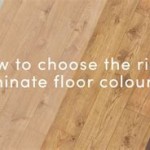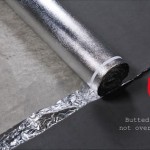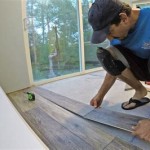```html
Rubber Flooring: A Practical and Versatile Home Solution
Rubber flooring has emerged as a compelling choice for homeowners seeking durable, comfortable, and aesthetically versatile surfaces. Once primarily associated with gyms and industrial settings, its benefits have become increasingly recognized for residential applications. This article will explore the advantages, types, considerations, and maintenance aspects of rubber flooring in the home.
The Allure of Rubber: Key Advantages
Rubber flooring presents a unique combination of properties that make it a strong contender for various areas within a home. Its inherent characteristics contribute to a comfortable, safe, and long-lasting floor covering.
Durability and Resilience: Rubber's inherent strength and elasticity render it exceptionally resistant to wear and tear. It withstands heavy foot traffic, dropped objects, and the rigors of daily life without easily denting, scratching, or cracking. This durability translates to a longer lifespan compared to many other flooring options, reducing the frequency and cost of replacements.
Comfort and Ergonomics: The natural cushioning effect of rubber provides a comfortable surface to walk and stand on. This ergonomic benefit is particularly valuable in areas where individuals spend extended periods on their feet, such as kitchens, home gyms, and playrooms. The resilience of rubber helps absorb impact, reducing strain on joints and muscles.
Slip Resistance and Safety: Rubber's textured surface offers excellent slip resistance, even when wet. This safety feature is particularly important in areas prone to moisture, such as bathrooms, kitchens, and entryways. The inherent grip of rubber flooring helps prevent accidents and injuries.
Acoustic Properties: Rubber effectively absorbs sound, minimizing noise transmission between floors and reducing echo within a room. This acoustic dampening is beneficial in multi-story homes, apartments, and areas where noise reduction is desired, such as home theaters or music rooms.
Water Resistance: While not entirely waterproof, rubber flooring exhibits a high degree of water resistance. This property makes it suitable for areas where spills are likely, such as kitchens, bathrooms, and mudrooms. Proper installation and sealing can further enhance its water resistance.
Low Maintenance: Rubber flooring is relatively easy to maintain. Regular sweeping or vacuuming removes loose debris, and occasional damp mopping with a mild detergent is typically sufficient to keep it clean. Its non-porous surface resists staining and bacterial growth, contributing to a hygienic environment.
Exploring Different Types of Rubber Flooring
The rubber flooring market offers a diverse range of options, each with its own characteristics and applications. Understanding the different types is crucial for selecting the best fit for specific needs and preferences.
Recycled Rubber Flooring: Made from recycled tires, this option is an environmentally conscious choice. It often features a speckled or multi-colored appearance due to the varying materials used in its production. Recycled rubber flooring is known for its durability, impact resistance, and sound absorption properties. It is commonly used in gyms, playrooms, and garages.
Synthetic Rubber Flooring: Manufactured from synthetic rubber compounds, such as styrene-butadiene rubber (SBR) or ethylene propylene diene monomer (EPDM), this type offers a wider range of colors and designs compared to recycled rubber. Synthetic rubber flooring is resistant to chemicals, oils, and UV radiation, making it suitable for both indoor and outdoor applications. It is frequently used in commercial settings, as well as in residential garages and patios.
Natural Rubber Flooring: Derived from the sap of rubber trees, this option is a sustainable and renewable resource. Natural rubber flooring is known for its elasticity, comfort, and natural beauty. It often features a smooth, matte finish and is available in a variety of colors and patterns. While more expensive than synthetic options, natural rubber flooring is a premium choice for environmentally conscious homeowners.
Rubber Tiles: Available in various sizes, shapes, and thicknesses, rubber tiles offer a modular and customizable flooring solution. They are easy to install and replace, making them suitable for DIY projects. Rubber tiles are often interlocking, creating a seamless and secure surface. They are commonly used in gyms, playrooms, and basements.
Rubber Rolls: Sold in long rolls, this type of rubber flooring offers a seamless and continuous surface. It is ideal for large areas where a uniform appearance is desired. Rubber rolls are typically glued down to the subfloor for a permanent installation. They are commonly used in commercial gyms, hallways, and basements.
Key Considerations Before Installation
Before installing rubber flooring, careful planning and preparation are essential to ensure a successful and long-lasting result. Several factors need to be considered to avoid potential issues and maximize the benefits of this flooring material.
Subfloor Preparation: A smooth, level, and clean subfloor is crucial for proper adhesion and performance of rubber flooring. Any cracks, holes, or unevenness should be repaired before installation. The subfloor should also be free of moisture, dust, and debris. Concrete subfloors may require grinding or leveling to create a suitable surface.
Adhesive Selection: The type of adhesive used depends on the type of rubber flooring, the subfloor material, and the intended use. It is essential to use an adhesive that is specifically designed for rubber flooring to ensure a strong and durable bond. Consult the manufacturer's recommendations for the appropriate adhesive.
Acclimation: Rubber flooring should be acclimated to the room temperature and humidity for at least 24 hours before installation. This allows the material to expand or contract, preventing dimensional changes after installation. Proper acclimation reduces the risk of gaps, buckling, or other issues.
Installation Techniques: The installation method depends on the type of rubber flooring being used. Rubber tiles are often interlocking and can be installed without adhesive. Rubber rolls typically require gluing down to the subfloor. Proper cutting, fitting, and alignment are essential for a professional-looking result. Consider hiring a professional installer if you lack experience with flooring installations.
Sealing (Optional): While not always necessary, sealing rubber flooring can provide additional protection against stains, scratches, and moisture. A sealant specifically designed for rubber should be used. Follow the manufacturer's instructions for application and maintenance. Sealing can also enhance the appearance of the flooring, giving it a glossy or matte finish.
Odor Considerations: Some rubber flooring, particularly recycled rubber, may emit a rubbery odor, especially when new. This odor typically dissipates over time with proper ventilation. Choosing low-VOC (volatile organic compound) rubber flooring can minimize this issue. Consider airing out the room thoroughly after installation.
```
Affordable And Durable 6mm Rubber Gym Flooring Tiles For High Energy Workouts

Home Gym Flooring Commercial

Virgin Rubber Tile With Foam Interlocking Tiles Diy Floor

How To Preserve Rubber Flooring Ozburn Hessey

20mm Sprung Rubber Heavy Duty Gym Tiles Flooring

What Is The Best Thickness For Weight Gym Flooring Mats

What S The Best Flooring For A Home Gym America

Best Flooring Options For Home Gyms Why Choose Rubber Floors Or Turf

Recycled Rubber Floor Rolls Regrind 3 8 Inch Per Sf

Best Types Of Flooring For A Home Gym Forbes
Related Posts








